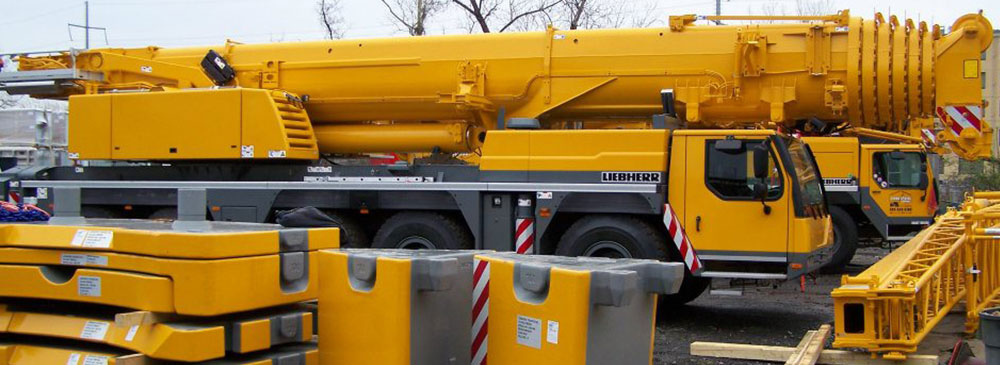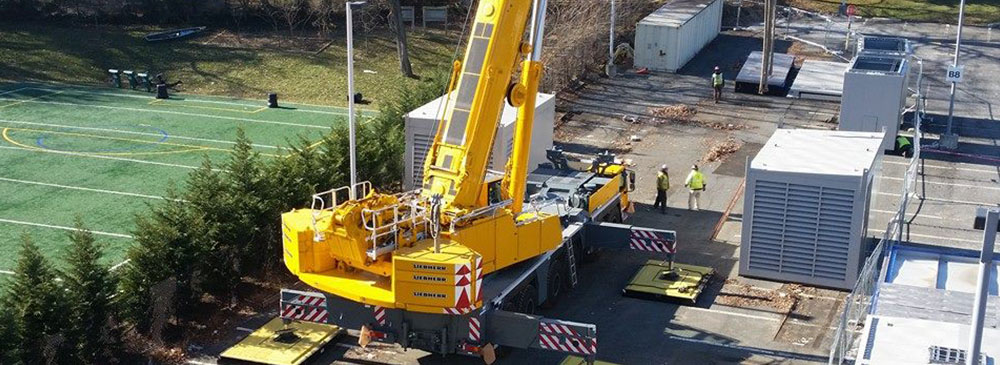
Are you preparing to begin a commercial building project? You will need a crane. If purchasing a crane is not an option, renting one from a crane rental services provider may be a more cost-effective solution.
You need to get in touch with a reliable crane rental company to discuss your requirements. To have a great time and rent the right unit, you must ask yourself several crucial questions. These questions include:
What do you want to lift?
Understanding the weights of the heaviest items you want to lift is critical. Knowing the weight of the load may appear straightforward, but there may be more to it than meets the eye.
You should learn the actual weights of your loads because it will determine the size of the crane you need to hire. The weight also has a significant impact on safety and efficiency of the unit.
Some people will advise that you guess the weight of the load, but don’t do this. You also should never randomly add weight.
You may think you are saving time, but doing this causes an error that may bother you later.
Adding a “contingency” load of a reasonable value to your load is best done directly and with the crane company’s input.
So, if you aren’t sure about the exact weight you want to lift, consult the crane company, and it will help you estimate it.
You can adjust the value of this contingency as conditions change and the project evolves, and you’ll always know where you stand.
The load’s dimensions is another thing to consider, so pay attention to it. Large items may be difficult to transport, so be cautious of their sizes.
While you are at it, know the location of the center of gravity. An excellent way to do it is to consult the fabricators’ designs. If your load’s center of gravity is not specified, let the fabricator help you estimate it. Don’t do it alone, as you will likely mess up.
How long will you need to hire the crane?
Before renting a crane, you must determine how long you will need the crane. The longer you use the crane, the more it costs.
As you are coming up with the cost of hiring the crane, consider the cost of deploying the crane. All-terrain cranes are designed to be driven on highways and are more cost-effective to transport than crawler cranes.
Larger all-terrain cranes typically require one or two truckloads of counterweights. Crawler cranes may need anywhere from a dozen to several dozen truckloads to get there, which means they will be expensive to transport.
The worst mistake you can make is hiring a crane only to find that you need it longer than you estimated. To ensure that you are hiring the crane for the right amount of time, work with professionals who will help you analyze the magnitude of the project and the amount of time it will take you to complete it.
Who will operate the crane?
The crane operator you hire significantly impacts the quality of experience you have with your crane. When you hire an inexperienced crane operator, there is even the risk of the crane collapsing and causing an accident.
To be safe, hire a contractor that knows what they are doing.
Most crane rental companies have two types of services. A service where they hire you the crane with the operator and one where they simply hire you the crane, and then you find your operator.
To avoid complications, hire a crane together with the contractor. This way, you are sure that the contractor is well-versed with the crane, and they are less likely to cause an accident.
They also are more likely to take good care of the crane as they use it regularly.
When you visit the rental companies, don’t just accept the operator recommended by the company. Instead, take your time to review their certifications and ensure they are experienced enough and authorized to work in your area.
Do you need to prepare the site?
Sometimes, you might need to prepare your work site to reduce the chances of accidents. Before renting a crane, bring a geotechnical expert to examine the area and recommend the best place to install the crane.
When hiring, find engineers supplying you with the ground-bearing pressures your equipment will exert on your location. If these pressure levels need to be reduced, the engineers will work with you to devise solutions to reduce the values to acceptable levels.
If the intended crane position is on disturbed soil, you may have to compact the soils. Remember that you shouldn’t erect cranes on disturbed or freshly backfilled soil, so you must give the soil time to settle before you bring on the crane.
Occasionally, the ideal site for the crane is above utilities, pipes, vaults, vessels, or other vital objects that may impact the crane’s capacity to support its operation at that location.
You must know about these subsurface problems to avoid damage.
To avoid accidents, work with engineers with extensive expertise in dealing with these difficulties and are eager to collaborate with you to find a solution.
Parting shot
When hiring a crane from crane services DC, you should ask these questions. As a rule of thumb, take your time hiring the crane.
Take your time and find a crane that is the right size and type for your project.
You also should hire an experienced crane operator who will minimize the chances of accidents and take good care of the crane.
Finally, properly prepare your work site. As a rule of thumb, work with experienced engineers who will adequately prepare the area and, at the same time, guide you on the best procedure to lift your load.
